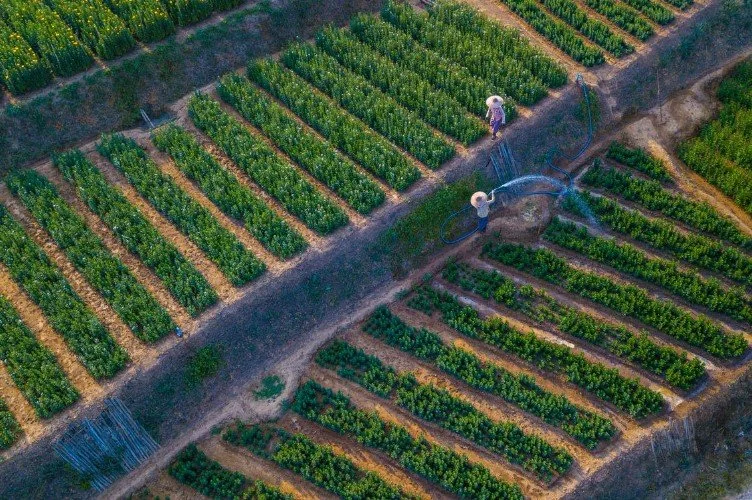Farmers have a difficult job. Not only do they have to contend with the natural challenges of farming, but they also have to worry about water contamination. Contamination can come from many sources, including agricultural runoff, animal waste, and chemical spills. Left untreated, it can cause serious health problems for people and animals. This blog post will discuss how to avoid contamination in farm water supplies.
Via Pexels
The Right Pesticides Are Key
One of the most important things farmers can do to avoid contamination is to use suitable pesticides. Pesticides are designed to kill pests but can also harm humans and animals if misused. Farmers should consider a pesticide's potential for runoff, leaching into groundwater, and volatilization into the air. They should also follow the label instructions carefully and only use the amount of pesticide needed to control the pest.
Proper Pest Management
In addition to using suitable pesticides, farmers must also practice proper pest management. This includes using cultural, mechanical, and biological methods to control pests. Cultural methods include crop rotation, which helps break pests' life cycle. Mechanical methods include traps and barriers, which can physically block pests from reaching crops. Biological methods include using predators, parasites, and pathogens to control pests.
Water Treatment
Another way to avoid contamination is to treat farm water supplies. This can be done using various methods, including filtration, adsorption, and ultraviolet light. Filtration removes particles from water using a filter. If you are wondering what is adsorption, it is the process of using an adsorbent material to remove contaminants from water. Adsorption is usually done using activated carbon. Whilst it can be used for multiple applications, you often find that the most prominent one is activated carbon for water filtration because of how successful at filtering it is. Along side the carbon, you will also have UV lights, as Ultraviolet light kills bacteria and viruses in water.
If you are looking to protect your crops, you may want to see these inline strainers as an ideal solution. For example, used with pesticide skid sprayers they can help to filter out debris in the tank or in your hose.
Proper Storage and Disposal
Farmers must also properly store and dispose of pesticides, fertilizers, and other chemicals. Pesticides and fertilizers should be stored in a cool, dry place. They should also be kept in their original containers with the labels intact. Chemicals should only be used according to the manufacturer's instructions. Finally, any unused chemicals should be disposed of properly, usually by taking them to a hazardous waste facility.
Install Grazing Boundaries and Fences
One of the best ways to keep your farm's water supply clean is to install grazing boundaries and fences. This will help to keep livestock from trampling through streams and ponds, which can lead to contamination. It would help if you also considered installing gates at all entrances to your property so that you can control who has access to your water sources.
Conservation Buffers
Another way to keep your farm's water clean is to implement conservation buffers. These land areas are left unplanted, which helps filter out pollutants and prevent soil erosion. Contact your local extension office to learn more about creating conservation buffers.
Cover Your Silos
If you have any silos on your property, you must always keep them covered. This will help prevent birds from getting inside and contaminating the grain. You should also regularly inspect your silos for any damage that can lead to contamination.
Maintain Septic Systems and Wastewater Treatment Plants
It is essential to have well-maintained septic systems and wastewater treatment plants. Septic systems should be pumped out every three to five years and inspected by a professional every one to two years. Wastewater treatment plants should be inspected regularly and operated according to the manufacturer's instructions.
Keep Manure and Chemicals Out of Water Supplies
Manure and chemicals can contaminate water supplies if they are not used properly. Manure should be applied to fields at the recommended rate and kept away from surface water sources. Chemicals should be stored in secure, covered facilities and used according to the label directions.
Use Your Irrigation To Its Full Potential
Irrigation can be a great tool to use when trying to avoid contamination in water supplies. By using irrigation, farmers can apply manure and chemicals directly to the root zone of crops, which reduces the chance of runoff.
Utilize Nutrient Management Practices
Finally, farmers can avoid contamination in their water supplies by utilizing nutrient management practices. This includes things like properly storing and applying manure, using cover crops, and practicing crop rotation. By doing these things, farmers can reduce the number of nutrients that leach into their water supply and cause contamination.
Final Thoughts
Waterborne illnesses are a serious problem, particularly in agricultural communities where contaminated water is often used for irrigation. Farmers must avoid contamination of their water supplies by following best management practices for manure and chemical application, storage, and use. Utilizing irrigation strategies that minimize runoff and employing nutrient management practices can also reduce the risk of contamination. Awareness of the dangers of contaminated water and taking steps to prevent it will help keep agricultural communities healthy and safe.


